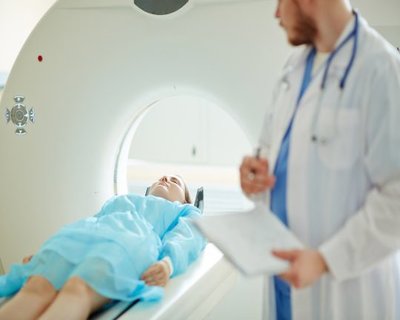- Home
- Editorial
- News
- Practice Guidelines
- Anesthesiology Guidelines
- Cancer Guidelines
- Cardiac Sciences Guidelines
- Critical Care Guidelines
- Dentistry Guidelines
- Dermatology Guidelines
- Diabetes and Endo Guidelines
- Diagnostics Guidelines
- ENT Guidelines
- Featured Practice Guidelines
- Gastroenterology Guidelines
- Geriatrics Guidelines
- Medicine Guidelines
- Nephrology Guidelines
- Neurosciences Guidelines
- Obs and Gynae Guidelines
- Ophthalmology Guidelines
- Orthopaedics Guidelines
- Paediatrics Guidelines
- Psychiatry Guidelines
- Pulmonology Guidelines
- Radiology Guidelines
- Surgery Guidelines
- Urology Guidelines
Low-dose radiation promising treatment for Alzheimer’s disease: Clinical Trials

Alzheimer’s disease can affect a person’s ability to think, communicate, and function. It greatly impacts their relationships, independence and lifestyle, as well as their family and caretakers. The condition’s toll not only affects nearly 6 million patients and their families, but it has ever-increasing financial implications also.
A team from the Beaumont Research Institute in Royal Oak, Michigan believes low-dose radiation might be a promising treatment for Alzheimer’s disease. The researchers are now seeking patients with Alzheimer’s disease for the study. This study is designed to assess the safety and toxicity/adverse events associated with the use of low dose fractionated whole-brain irradiation in those patients who have been diagnosed with probable Alzheimer's disease according to the National Institute of Neurological and Communicative Disorders and Stroke and the Alzheimer's Disease and Related Disorders Association (NINCDS-ADRDA) criteria
In early pre-clinical studies, radiation was found to be effective in reducing brain plaques. These plaques are a protein, known as beta-amyloid, which accumulate in the brain. It is widely believed the buildup of beta-amyloid protein causes cognitive impairment leading to Alzheimer’s disease.
For the past seven years, a team of Beaumont researchers have been studying the use of low-dose radiation therapy to treat Alzheimer’s in several models. They have been one of the first in the world to study low-dose radiation for Alzheimer’s. The Food and Drug Administration has given them approval for a study designed to examine the effects of radiation on people with moderate stage Alzheimer’s disease.
The Beaumont study (ClinicalTrials.gov NCT#02359864) is taking place at two sites: Beaumont Hospital, Farmington Hills, under the direction of principal investigator Dr James Fontanesi; and Beaumont Hospital, Royal Oak, under the direction of principal investigator Dr Prakash Chinnaiyan.
Researchers are seeking individuals with moderate stage Alzheimer’s disease for whole-brain radiation treatments. Patients who meet the study criteria and are consented will receive treatments for five consecutive days for 15 minutes or less each day. Cognitive testing, quality of life assessment, and PET scans to examine amyloid plaque will be done before and after radiation to determine if the treatment affects disease progression after four, six and 12 months. Potential toxicity will also be monitored.
For more information about the study, contact Evie Russell at Beaumont, Farmington Hills: 248-898-5388, Evelyne.Russell@beaumont.org; or Joanne Gondert at Beaumont, Royal Oak: 248-551-0439, Joanne.Gondert@beaumont.org.
Explained George Wilson, Ph.D., radiobiologist and researcher, “Currently there is no cure for Alzheimer’s, and current pharmaceuticals have had limited success. Pharmaceuticals are costly and time-consuming to develop. In contrast, radiation therapy is a proven treatment for cancer and can be done safely, quickly and inexpensively.”
Beaumont researchers believe modest treatments of radiation therapy targeted to the brain might be effective at reducing beta-amyloid and the progression of Alzheimer’s, while not producing further cognitive deficits.
Alzheimer’s disease is the most common form of dementia in the elderly. As Americans age, the number of those affected by Alzheimer’s is rising dramatically. Today, close to 6 million Americans live with Alzheimer’s disease. By 2050, it’s estimated that the figure will increase to 14 million.
For further reference log on to :
Study of Low Dose Whole Brain Irradiation in the Treatment of Alzheimer's Disease, ClinicalTrials.gov Identifier: NCT02359864, https://clinicaltrials.gov/ct2/show/study/NCT02359864

Disclaimer: This site is primarily intended for healthcare professionals. Any content/information on this website does not replace the advice of medical and/or health professionals and should not be construed as medical/diagnostic advice/endorsement or prescription. Use of this site is subject to our terms of use, privacy policy, advertisement policy. © 2020 Minerva Medical Treatment Pvt Ltd